Demonstrators around the world demanded action on gun violence Saturday, a massive display spurred by a shooting at a Florida high school last month that left 17 people dead.
Protesters from Los Angeles to London marched, held signs and chanted during “sibling marches” of the March for Our Lives rally, which has drawn an enormous crowd of protesters to the nation’s capital.
More than 800 events are happening worldwide, according to the gun-control group Everytown for Gun Safety. Counterprotests and separate rallies organized by gun rights groups are also taking place.
In New York, a sea of gun-control demonstrators stretched for about 20 blocks. In Boston, throngs of people jammed Boston Common. In Columbus, Ga., hundreds protested downtown. People gathered outside city hall in Las Vegas, where a gunman killed 58 people at a country music festival last year. A march is also planned in Jonesboro, Arkansas, on the 20th anniversary of a shooting at a middle school there that left four students and a teacher dead.
And in Parkland, Florida, where the shooting that became the catalyst for the marches took place at Marjory Stoneman Douglas High School, Anishka Milleret pushed a wheelchair through the grass and up and down the small hillocks at Pine Trail Park to make sure her children were present at the city’s rally.
Her daughters, Dianna and Deanna Milleret, are 16-year-old twins, both sophomores at Stoneman Douglas. Deanna’s cerebral palsy requires her to be in a wheelchair much of the time. It was rough going on the park’s bumpy turf Saturday morning, but that didn’t stop them.
“They both have memories of that day, and they’re both dealing with it in their own ways,” Milleret said.
Along with the trauma of being in school during the shooting, the Millerets had the added anxiety of not being able to locate Deanna for hours afterward. She was evacuated along with hundreds of other students to a nearby hotel, but it took her mother hours to get to her.
“I’m hoping things can get back to normal at some point,” Milleret said. “I think they will. I hope so.”
Groups gathered outside the U.S. Embassies in Copenhagen, London and Stockholm; in London they shouted “gun control now.” In Tokyo, people gathered at Shibuya Crossing, holding signs with the names of people killed in mass shootings. In Frankfurt, a group walked down a street shouting, “No guns in our schools.” In Sydney, a group of children held posters.
Iris Diaz, a student at Stoneman Douglas, is on a long-planned trip to the Czech Republic. But she still planned to march.
“She’s with friends from school, and they’re going to march on Saturday down the streets of Prague,” said her mother, Audrey Diaz.
Josephina Davis, a 15-year-old from Boston, was 7 when her brother, Johnny, was shot and killed. Davis, who boarded a bus to Washington at midnight, said she is protesting “to support other people who have lost people to gun violence.”
A protest is taking place in Palm Beach, Florida, not far from where President Donald Trump is spending the weekend at his Mar-a-Lago estate. In a statement Saturday, deputy White House press secretary Lindsay Walters said that “Keeping our children safe is a top priority of the President’s.” The spending bill signed by Trump on Friday includes a provision to tighten the nation’s background-check system and may slightly open the door to restoring federal funding for gun research.
“We applaud the many courageous young Americans exercising their First Amendment rights today,” the White House statement said.
Counterprotests by supporters of gun rights are taking place in cities including Helena, Montana, Boise, Salt Lake City and Valparaiso, Indiana.
In Utah, the organizers of the pro-gun March Before Our Lives wrote on Facebook: “We march in support of the rights, lives, safety, and security of our children. We shall defend ourselves, our families, and those that cannot, or will not defend themselves, utilizing any means at our disposal, including our rights under the 2nd Amendment.”
In Boston, where a gun-control march took place on Boston Common, a group of about 25 counterprotesters gathered in front of the gold-domed State House to protest tougher gun laws.
“I think it’s a little ridiculous,” Robert Johnson, 21, said of the March for Our Lives event. “I’m here to support the Second Amendment. He wrapped himself in a “Don’t Tread on Me” flag.
“After a tragedy like this one,” he said of the Parkland shooting, “everyone looks past the motives of the shooter and immediately focuses on guns. If you run over someone with a car, they don’t blame the car. But if someone is shot, they immediately blame the guns.”
In New York, a massive crowd of protesters stretched for about 20 blocks, starting in front of the Trump Plaza on 61st Street. A teenage girl standing near the Dakota, where John Lennon was shot in 1980, held a sign that read, “If I die in a school shooting forget burial – drop my body on the steps of the capitol.”
Megan Bonner, 16, survived the massacre at Stoneman Douglas and spoke on a stage in Central Park. In an interview, she said she grew up with active-shooter drills, but never felt unsafe.
“I never thought that it would happen at my school,” she said. “I never thought that I would have to be one of those schools, and I never thought that I would have to go up on stage and say that I was a survivor.”
Bonner said she knew Nikolas Cruz, the alleged shooter in last month’s massacre.
“My friends constantly reported that he was threatening them,” Bonner said. “For instance, he told my friend that he was excited to gut her like a fish and play with her dead body.” She said she wants to see enhanced background checks and a waiting period for people who want to buy guns.
Steve Auerbach, a pediatrician, came to the rally after years spent seeing the affects of gunshots up close.
“I used to do ER work in Los Angeles and Atlanta and saw pediatric gun violence on a daily basis,” Auerbach said. “As a pediatrician and a father, I find it appalling, the ease of access to guns.”
Joe Bermudez, 58, said he is a supporter of Trump and gun rights – and that no one on either side wants violence.
“They are lovely Americans that are marching here,” he said, gesturing to the crowd. “They don’t want any violence, and we don’t want bloodshed any more than they want it.”
High school juniors Lindsy Voelker and Sophia Reynolds of Boiceville, New York, wore orange T-shirts that read “Enough” in multiple languages and featured tally marks to represent lives lost to gun violence. Voelker, 16, said no one at her school spoke about the Parkland shooting.
“I was angry, because it’s like 17 students were killed and then no one talks about it. It’s crazy; we’re students. We should talk about it. Around our school, a lot of people own guns,” she said. “If we’re going to be the future of this country, we need to be taught about these things, so if we want to do anything about it, then we have the choice.”
Some in New York came to protest the protesters. Jim McDonald, a 68-year-old New Yorker, wore an National Rifle Association hat and said the anti-gun demonstrators are “leftists and communists” – and misinformed about guns.
“These people do not understand that the Second Amendment means that a citizen can bear the same arms that an ordinary soldier would,” he said.
In Columbus, Georgia, about 300 people attended an anti-gun rally in the conservative city. Alexa Johnson-Anderson came with her 6-year-old daughter because she is appalled the children have to participate in active-shooter drills at school.
“They just know they have to be quiet,” she said. “But as a parent, that should not be the norm. It’s something to think kids at this age have to go through that.”
Olivia Gardner, a 19-year-old sophomore at the University of Colorado, helped plan a march in Denver. Gardner is from Aurora, Colorado, where a gunman killed 12 people in a movie theater in 2012. She said organizers want to take their cause beyond the march and will lay out next steps, including a possible push for legislation that would allow guns to be seized from a person deemed by a judge to be a threat to themselves or others.
And in Parkland, Zayn Gregory, 13, and her 16-month-old sister, Raeviane, wore matching “MSD strong” T-shirts, as did their father, James Gregory.
“We brought the whole family from Boca [Raton], teens down to toddler,” James Gregory said as he hoisted Raeviane onto his shoulder. “It’s important for all of us to be here.”
Zayn said adults should pay attention to the teenagers.
“I have friends who knew some of the students who died. They are deeply affected, ” Zayn said. “We are speaking up so this never happens again. I think people need to listen to us. We can’t vote now, but we will soon.”
The Post’s Donna Bryson in Denver; Diana Crandall in New York; Jim Lynn in Columbus, Georgia; Lori Rosza in Parkland, Florida; and Doug Struck in Boston contributed to this report.
Send questions/comments to the editors.

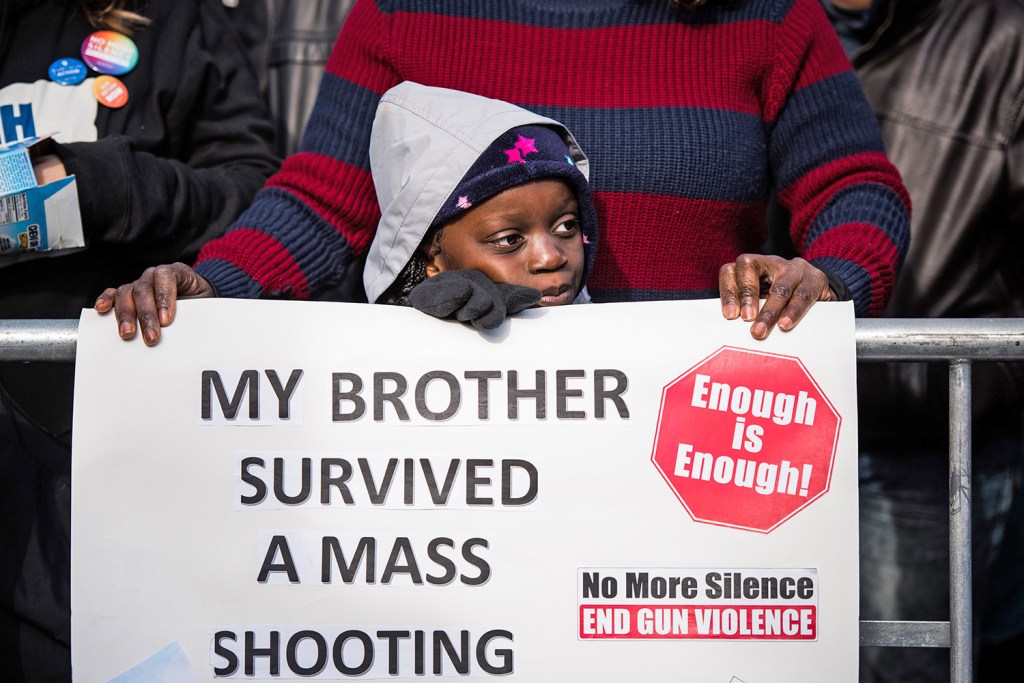
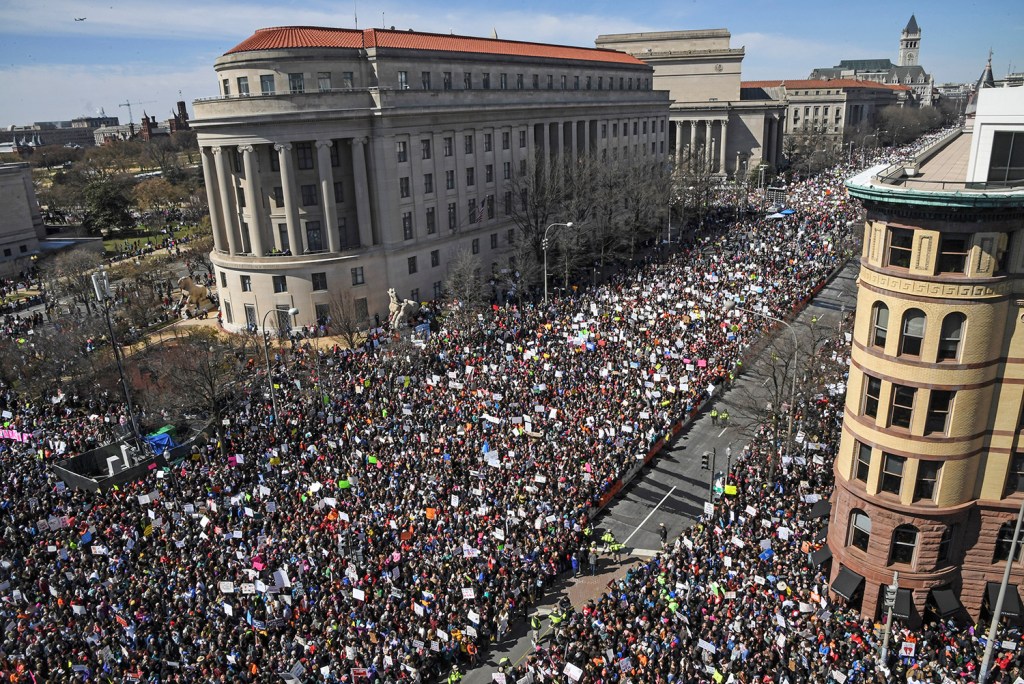
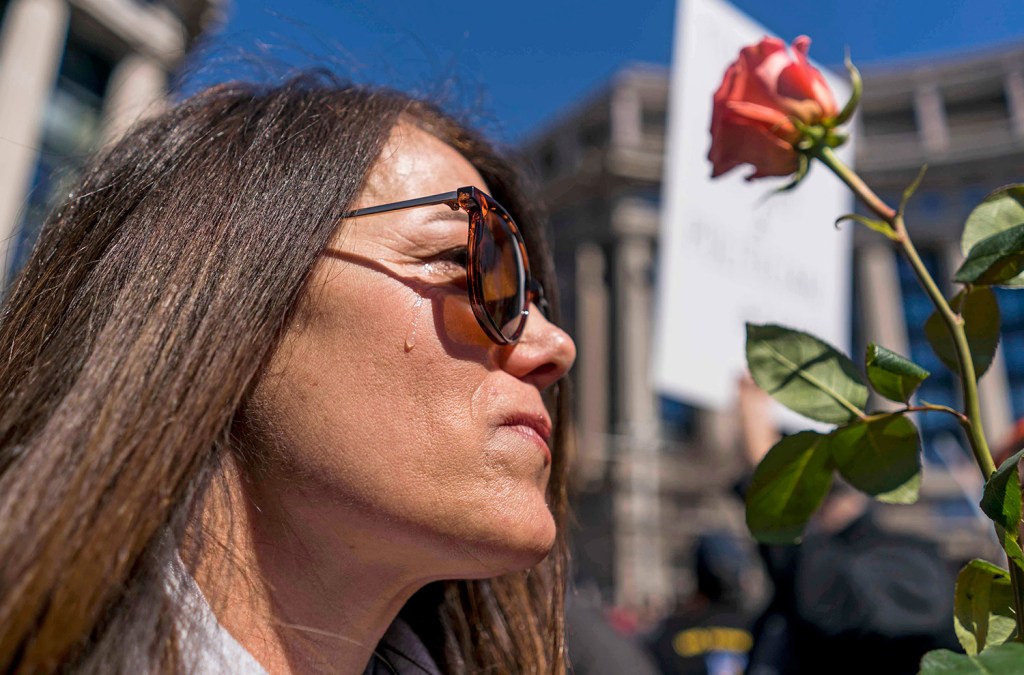
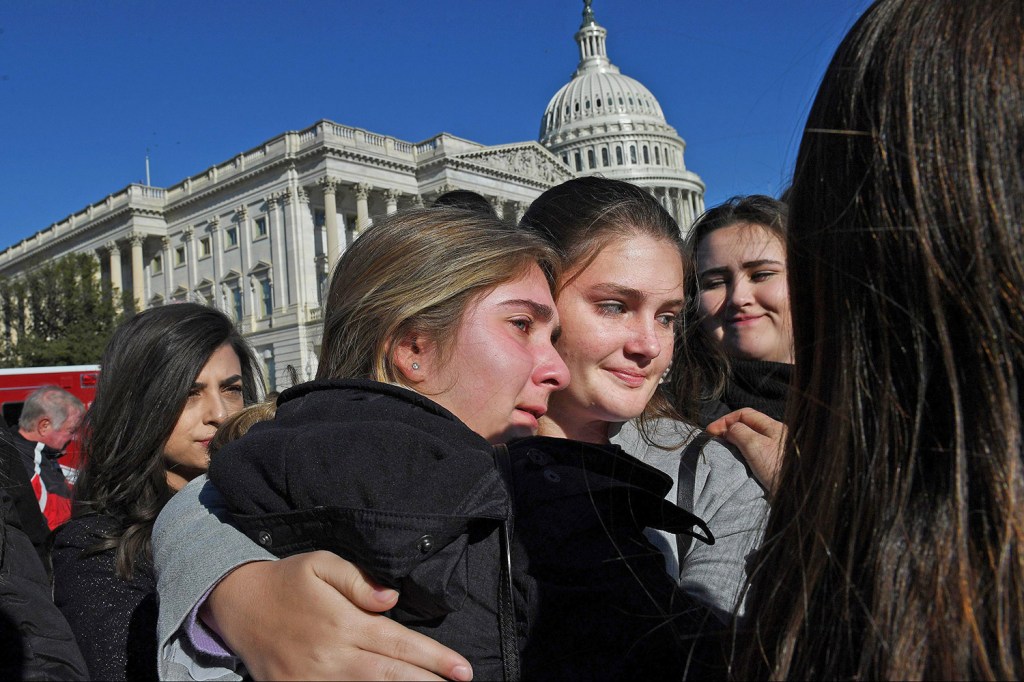
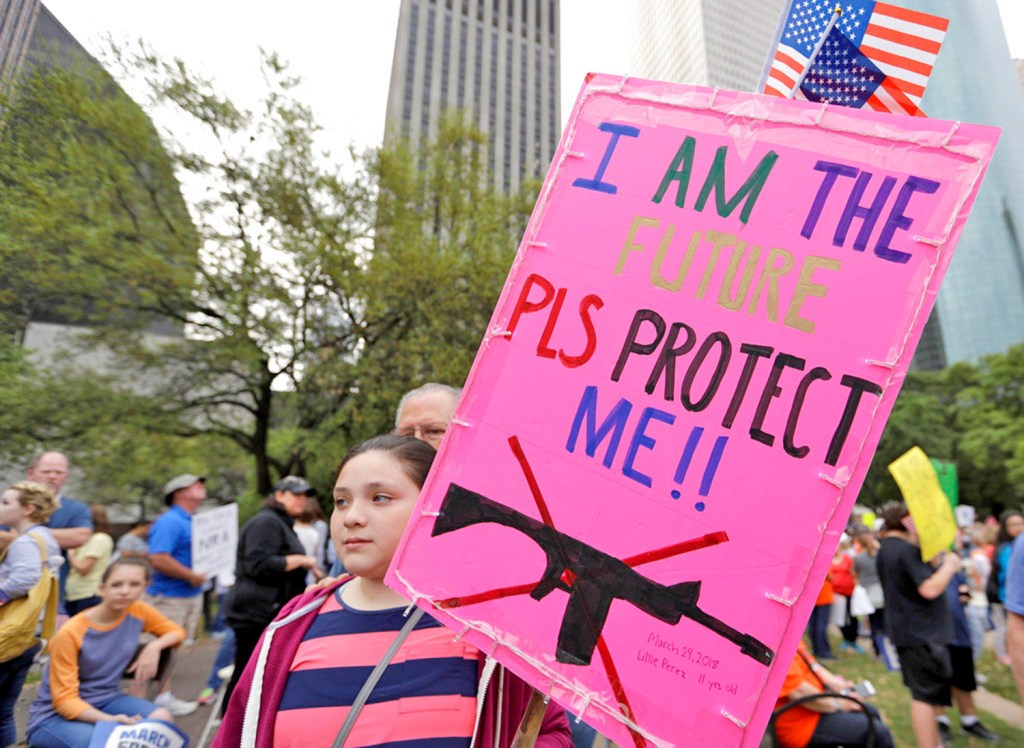
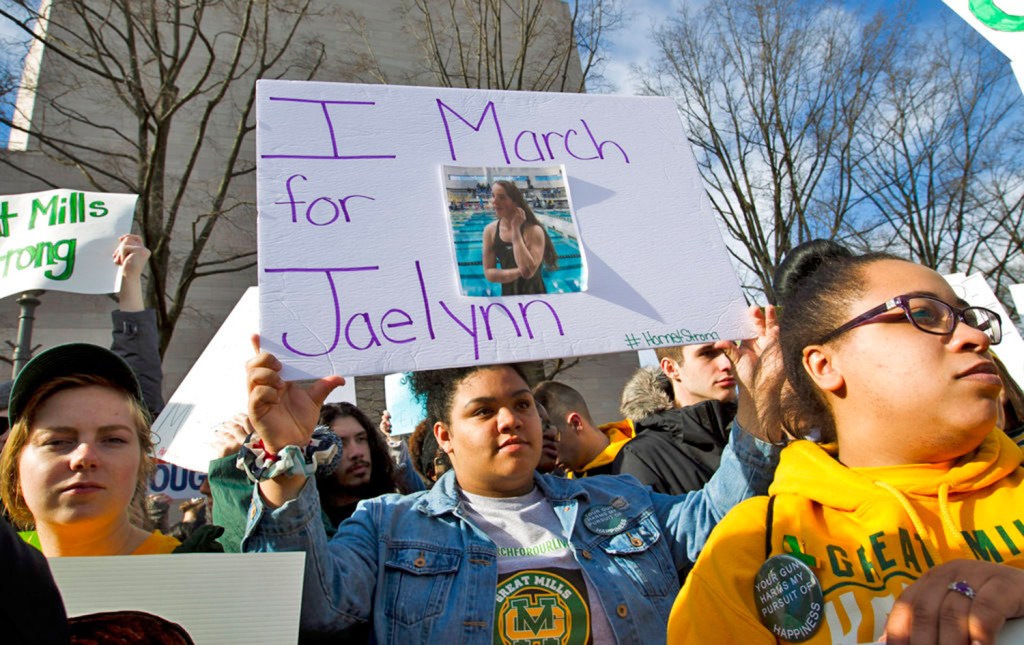
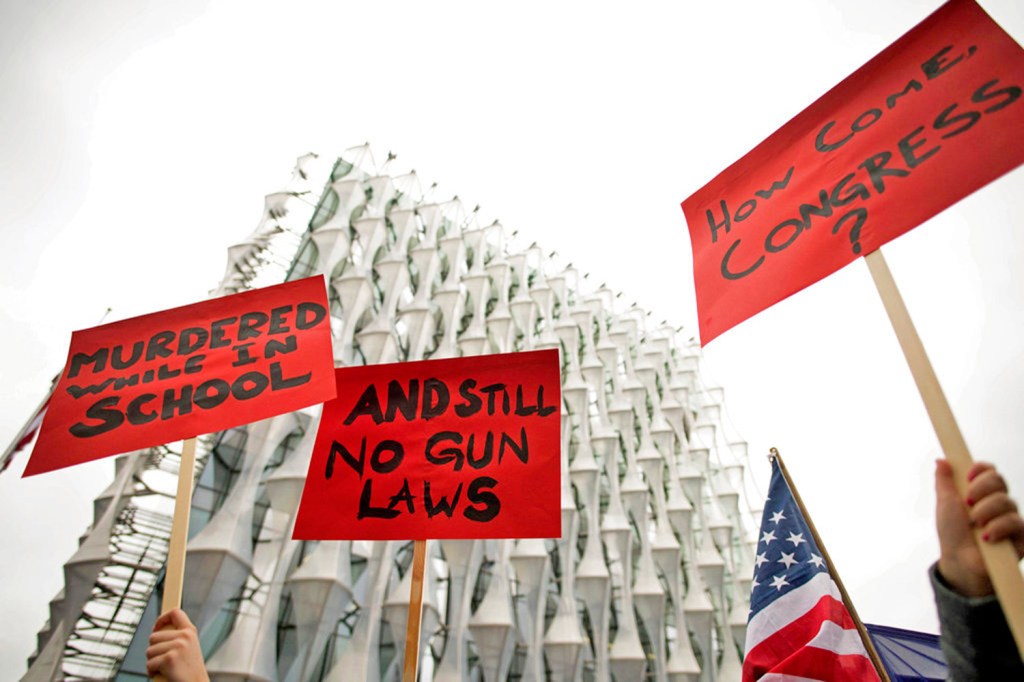
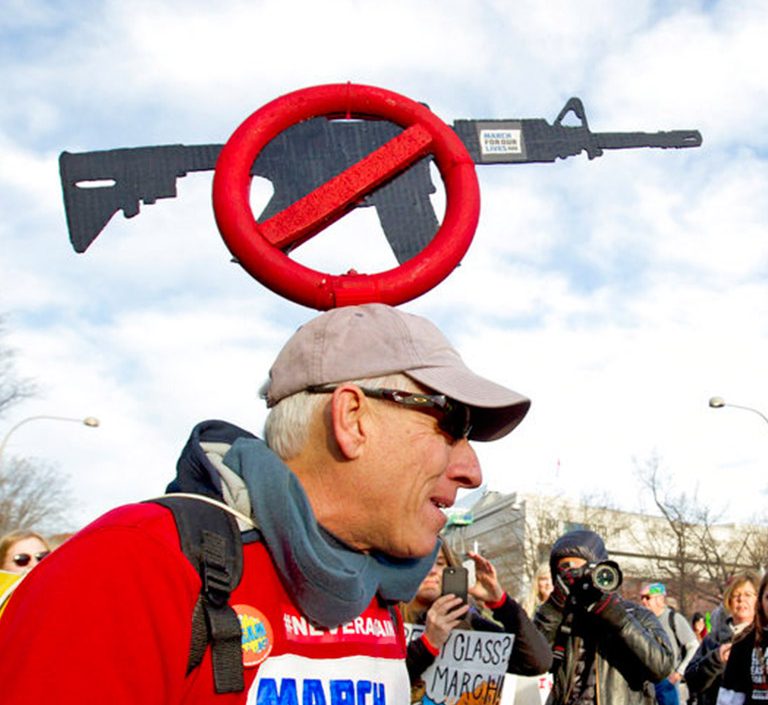
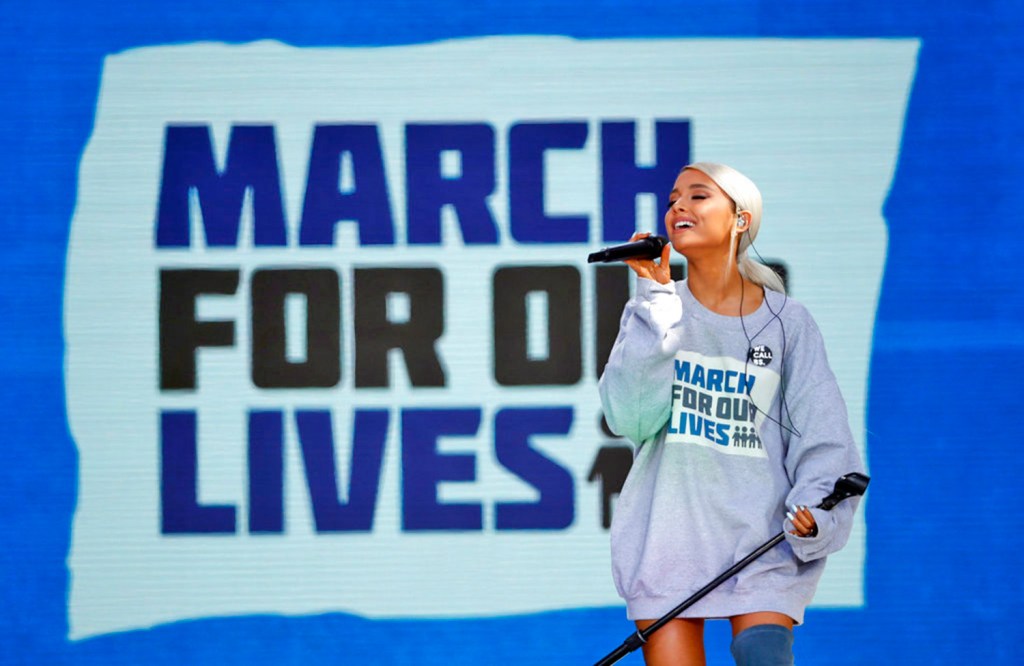
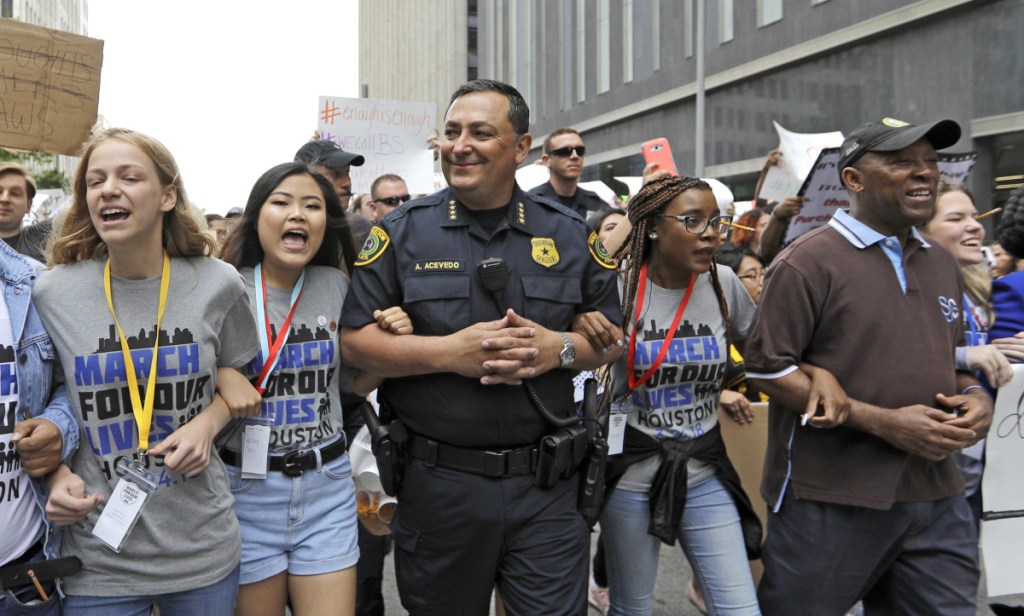
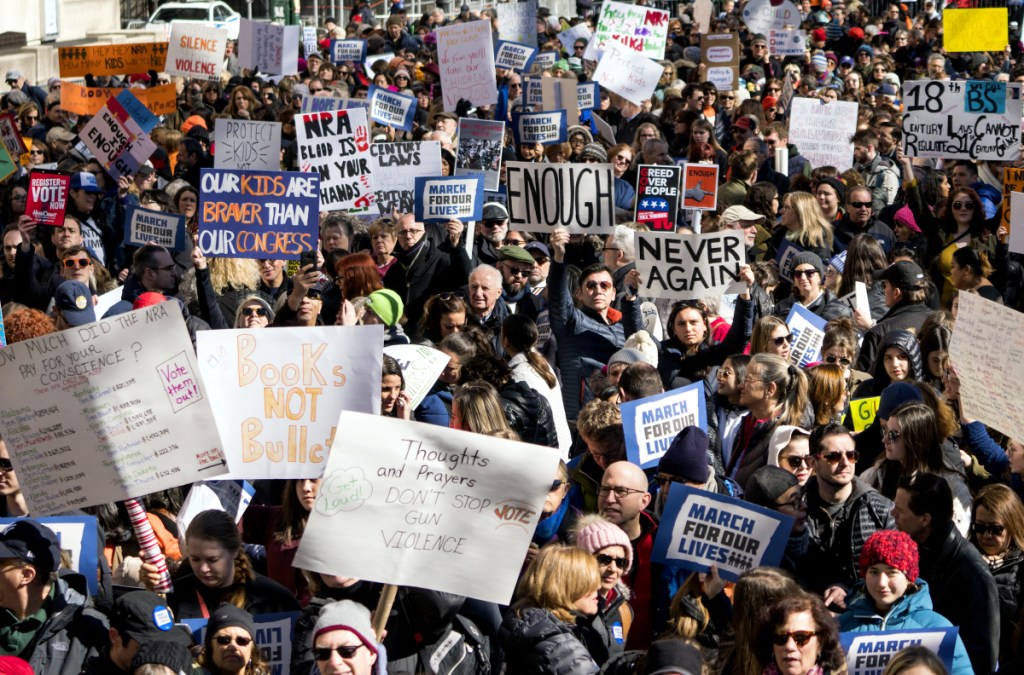
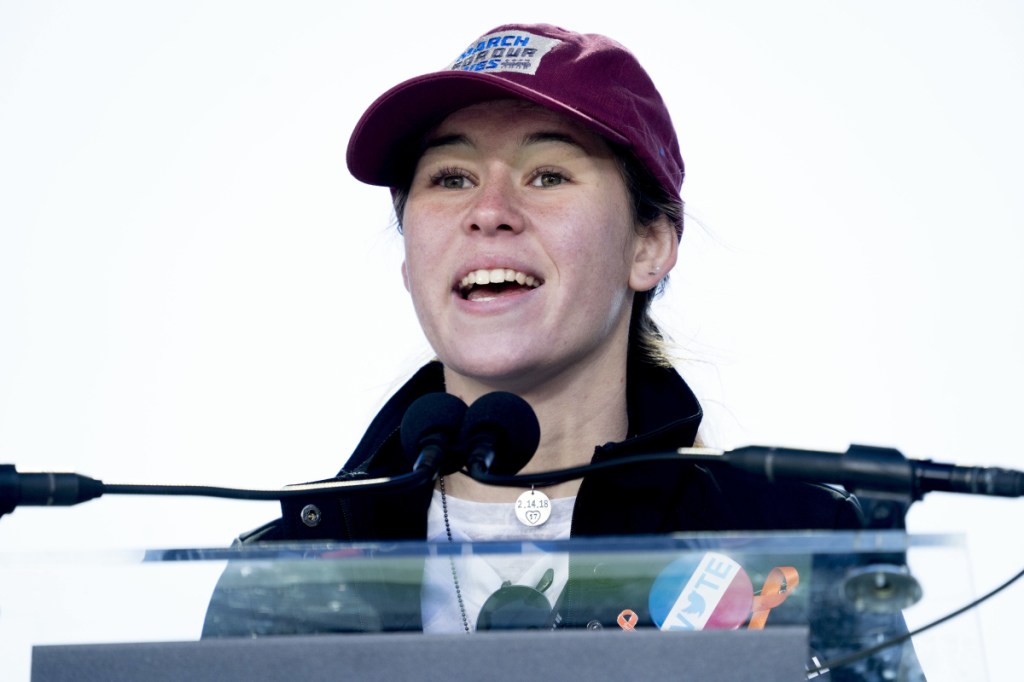
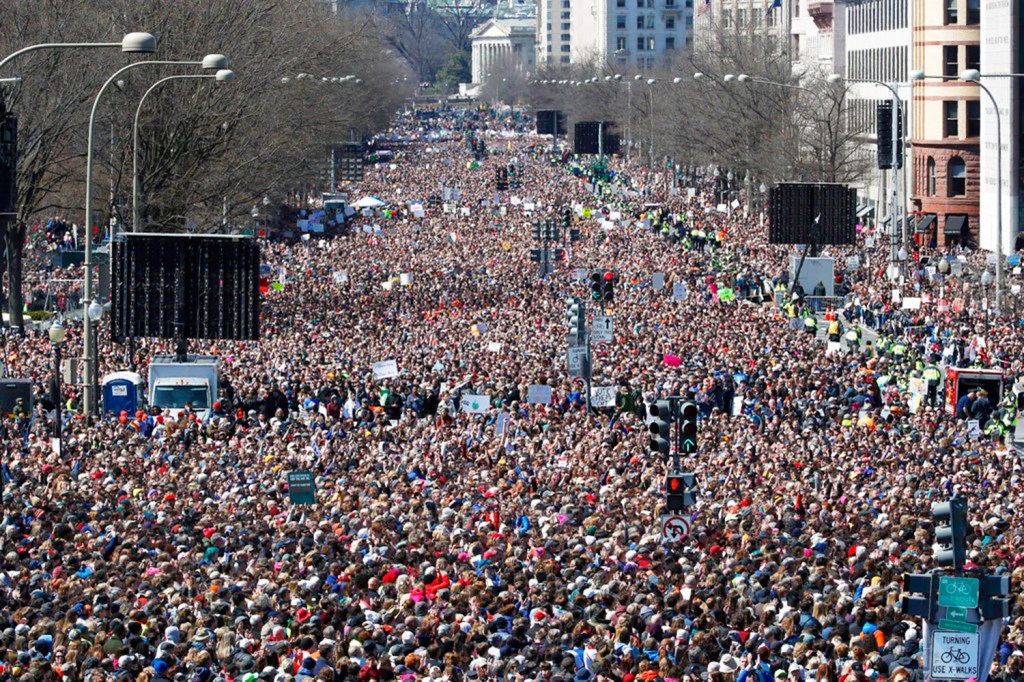
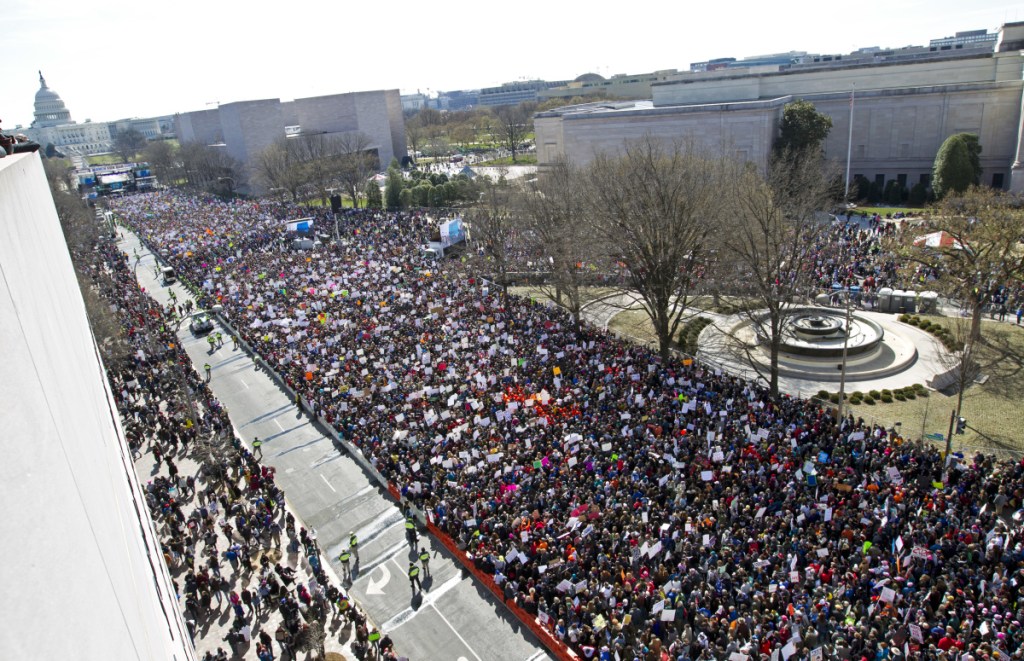

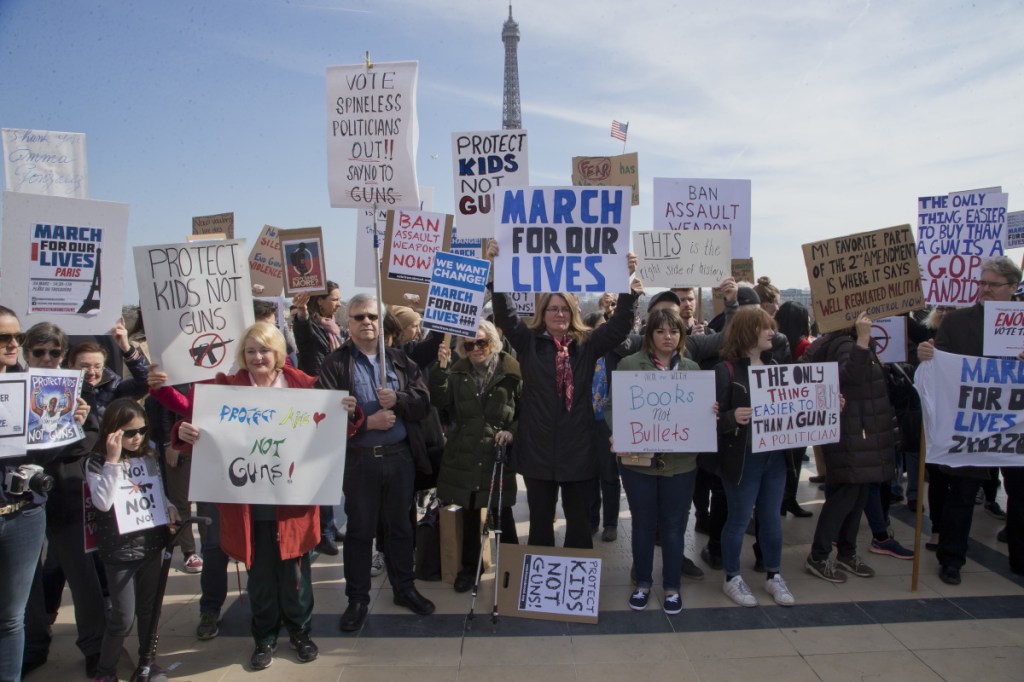
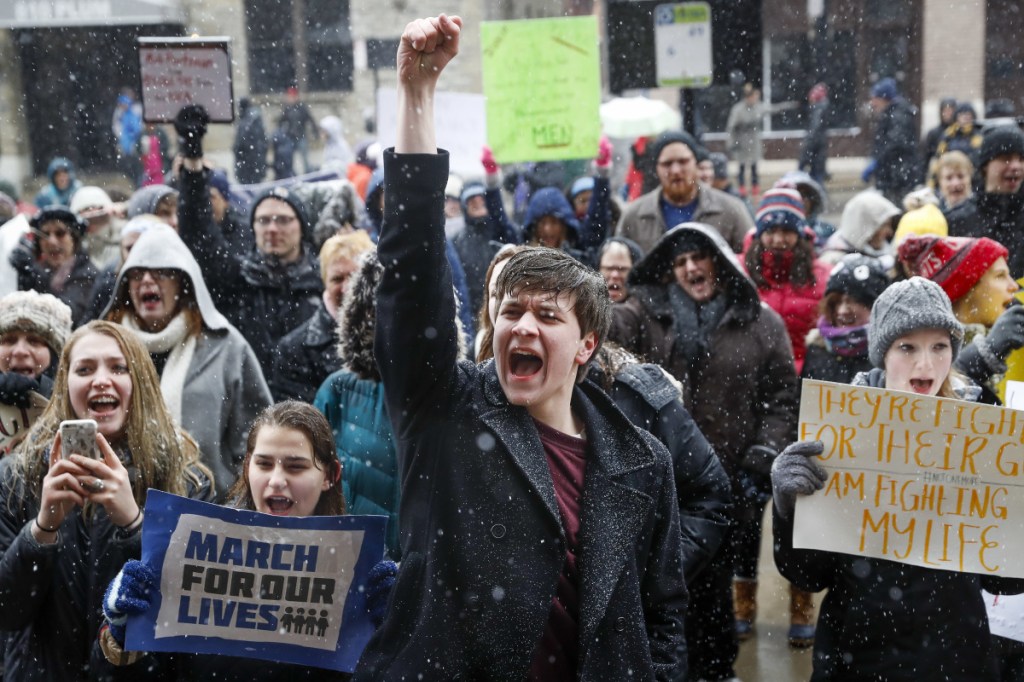

Success. Please wait for the page to reload. If the page does not reload within 5 seconds, please refresh the page.
Enter your email and password to access comments.
Hi, to comment on stories you must . This profile is in addition to your subscription and website login.
Already have a commenting profile? .
Invalid username/password.
Please check your email to confirm and complete your registration.
Only subscribers are eligible to post comments. Please subscribe or login first for digital access. Here’s why.
Use the form below to reset your password. When you've submitted your account email, we will send an email with a reset code.